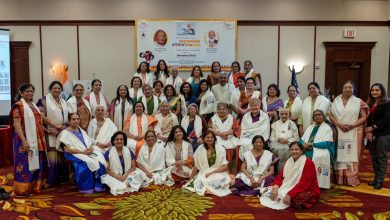
Tanuj Shivahare
There was a time when life in cities like Jaipur was peaceful, predictable, and delightfully simple. Roads weren’t just means of transport — they were spaces of freedom. Children could cycle to school, return home for lunch, and go out again in the evening to play, all without a second thought about traffic, road conditions, or safety. Streets were navigable, pedestrians were respected, and chaos wasn’t the norm. Today, that sense of freedom feels like a fading memory.
In just a few years, stepping out of one’s home — even for a short distance — has become a mentally exhausting task. Incessant traffic, sudden diversions, pothole-ridden roads, and a shocking lack of pedestrian infrastructure have turned everyday travel into a test of patience and nerve. Finding a footpath is a luxury. Crossing a road safely feels like playing Russian roulette. The charm of old Jaipur — where a casual walk from Civil Lines to Kishanpole for a kachori was a joy — still lingers in our hearts, but not in our streets.
What’s worse is the growing absence of regulation and order. Electric rickshaws choke narrow lanes, two-wheelers dart through traffic as if rules don’t apply, and traffic police — when visible — seem more concerned with collecting fines than ensuring order. But this problem isn’t just about failing systems. It’s about us — a society that has slowly stopped caring. We’ve become so caught up in our personal routines that we no longer feel responsible for the collective experience of city life.
This needs to change — and it must begin with education. We must introduce Civic Sense as a dedicated subject in schools. Not just a token chapter, but a serious curriculum that teaches young citizens the value of shared spaces, the importance of traffic discipline, and the responsibility we hold toward public property and fellow citizens. More importantly, it should instil the belief that kindness and empathy must come before any social, religious, or regional identity.
However, awareness shouldn’t stop in classrooms. It must move to the very places where it’s needed most — our streets. We must consider running short, powerful visual reels at major traffic junctions. These should be simple, universally understandable messages that even those who cannot read or write can connect with: letting an elderly person cross the road, giving way to an ambulance, not honking near hospitals, picking up litter, or simply showing patience in traffic. These aren’t privileges of a modern society — they are its foundations.
Many countries prioritise education, sanitation, civic behaviour, and public infrastructure. India certainly has the potential to do the same — what we lack is the will. The problem is not that better systems are impossible; it’s that we’ve stopped demanding them. We’ve stopped expecting better — from the system, from others, and from ourselves.
So maybe it’s time we pause and reflect. Time we look around at the cities we live in and ask ourselves what kind of future we want to build — not just for ourselves, but for generations to come. A little care, a little awareness, and a little kindness can go a long way in reclaiming the soul of our cities.







